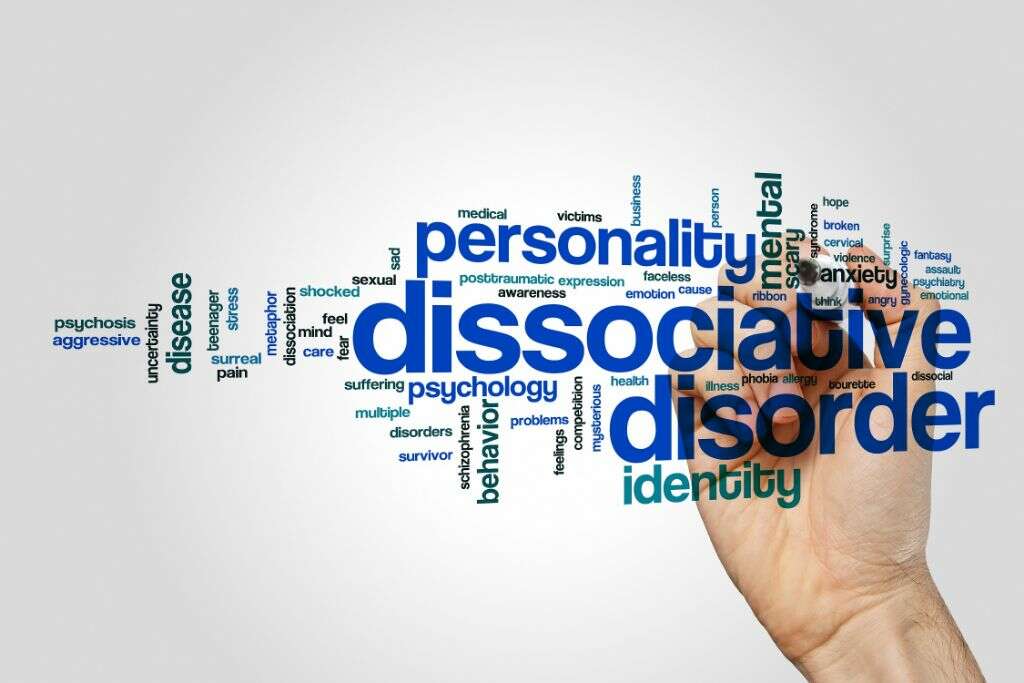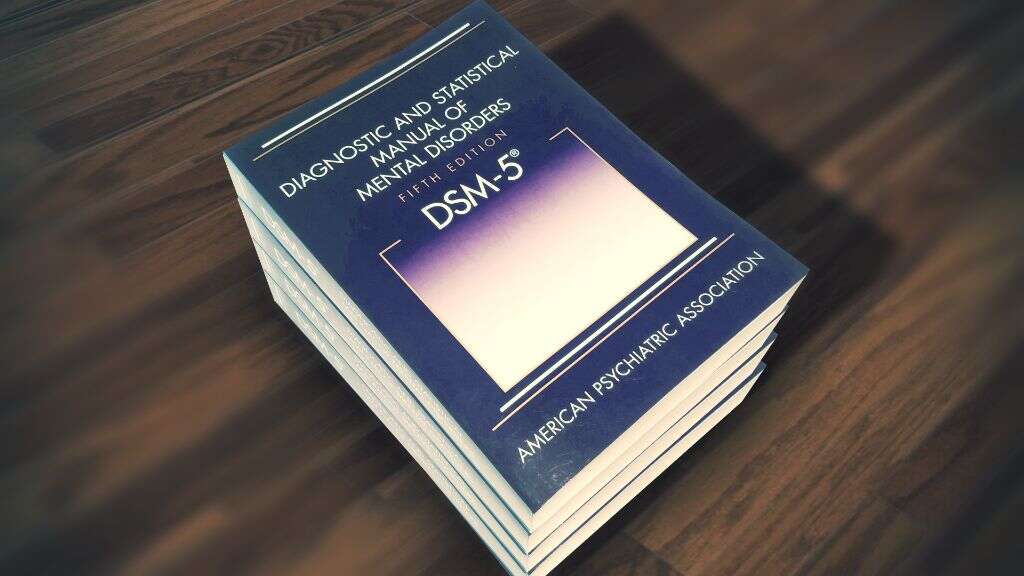What Is Dissociative Disorder?
Dissociative disorder is a mental health condition characterized by a disconnect between a person’s identity, memory, thoughts, actions and surroundings. There are three classifications for the disorder: dissociative amnesia, dissociative identity disorder and depersonalization-derealization disorder.
Anyone of any age can experience this condition, but women are diagnosed more frequently than men. Up to 75% of the population experiences an episode at some point in life; however, only 2% meet the complete criteria for a chronic condition.1Hunter, E.C.M, M. Sierra and A.S. David. The Epidemiology of Depersonalization and Derealization: A Systematic Review. Social Psychiatry Psychiatric Epidemiology. 2004 Jan;39(1):9-18. doi: 10.1007/s00127-004-0701-4.

1. What Causes Dissociative Disorder?
The disorder develops most frequently as the result of severe and, often, persistent trauma. The stress of ongoing war or a natural disaster can bring about the condition, as can sexual, emotional and physical abuse. It is sometimes seen in children who come from home environments that are exceptionally unpredictable or frightening.
Dissociative disorder most often arises in childhood because children are still in the stages of developing their identities. As such, it is easier for them to alter their perspectives so that it seems the trauma is happening to someone other than themselves. When children develop this coping mechanism, they may carry it with them into adulthood.

2. What Are the Primary Symptoms?
The three categories of dissociative disorder share a number of symptoms. A sense of emotional and personal detachment and blurred identity is common. People with the condition are often depressed or anxious and may have suicidal thoughts.
It is not unusual for individuals suffering from the disorder to experience significant struggles with their interpersonal relationships. There are often serious challenges at work or in other important aspects of life. It can be very difficult to deal with the emotional stresses encountered in day-to-day life.

3. What Are the Symptoms of Dissociative Identity Disorder?
Dissociative identity disorder was previously known as multiple personality disorder. The primary symptom in this condition is the perceived presence of different personalities. People with the disorder often feel like they have more than one person living inside them or speaking inside their heads.
Often, they appear to switch between the different personalities. Each identity has its own set of characteristics, with differing histories, mannerisms, voices and genders all possible. The identities may be familiar with one another, but they aren’t always. Frequently, a person who has this condition also experiences dissociative amnesia.

4. What Are the Symptoms of Dissociative Amnesia?
Memory loss is the primary symptom of this disorder. The severity of loss is much greater than what can be explained by typical forgetfulness, and there is no medical cause for it. Frequently, information is lost about the individual themselves, other important people and events. The amnesia episode generally comes on suddenly and can last from minutes to hours. Rarely, it can extend over a period of months or years.
Often, the amnesia is related to specific events. The memory of a traumatic event or period is lost. On rare occasions, individuals experience a complete loss of information about themselves. During an episode, it is not unusual for individuals to travel or otherwise walk away from their lives, doing so in a state of confusion.

5. What Are the Symptoms of Depersonalization-Derealization Disorder?
The category is characterized by two different sets of symptoms that may be experienced singularly or concurrently. Depersonalization is associated with feelings of detachment. People who have this symptom feel as if they are observing their own actions, thoughts and emotions from outside of themselves.
When derealization occurs, other people and the environment seem unreal. Time may slow down or speed up. Those who experience derealization often feel as if they are moving in a fog or dream. Depersonalization and derealization symptoms can be chronic or episodic. Episodes can last minutes or come and go over the course of years.

6. What Are the Risk Factors?
The risk factors associated with dissociative disorder have to do with significant trauma. Children who are sexually, physically or emotionally abused during childhood are at risk for developing dissociative disorders later in life.
People who experience other types of traumatic events are also at risk. These types of events can range from kidnapping to war and torture to natural disasters. In these cases, both children and adults are vulnerable to developing the condition.

7. What Are the Complications?
There are a number of potential complications, additional risks and associated conditions that can result from dissociative disorder. Many people experience suicidal thoughts and behaviors and attempt to harm or mutilate themselves. Depression and anxiety are common. Some individuals develop a personality disorder or post-traumatic stress disorder.
Frequent episodes of insomnia, sleepwalking and nightmares are also possible. It is not unusual for people to develop alcohol and drug addictions and eating disorders. Personal relationships can be incredibly difficult, and sexual dysfunction is not uncommon. There is the potential for additional physical symptoms, such as non-epileptic seizures and lightheadedness.

8. How Is Dissociative Disorder Diagnosed?
Dissociative disorder is generally diagnosed using a combination of physical and psychiatric assessments. The physician conducts in-depth interviews to determine whether a medical condition may potentially be the cause of the symptoms. Brain diseases, head injuries and sleep deprivation can all lead to symptoms similar to dissociative disorder.
If a medical condition is ruled out, it is typical for the doctor to refer the person to a mental health professional. This person then assesses the individual. The DSM-5 is generally used as a measure of whether symptoms meet the diagnostic criteria.

9. How Is Dissociative Disorder Treated?
Specific treatment approaches depend on which classification of the disorder an individual has. In general, plans involve a combination of medical and psychological treatments. There are no medications that are targeted for dissociative disorders, but frequently antipsychotic, antidepressant or antianxiety medications are prescribed to help alleviate some of the symptoms.
The primary treatment approach is psychotherapy. A trained professional works with the person to improve understanding of the condition. The therapist also helps devise methods of coping with stressful situations. Where possible, the professional assists the individual in working through the traumatic event that led to the dissociative condition.

10. Can Dissociative Disorder Be Prevented?
To prevent children from developing dissociative disorder later in life, it is important to address situations at home that could lead to emotional, physical or sexual abuse. Providing education, therapy and other types of assistance that may help reduce the potential for abuse is imperative.
When children and adults do suffer from the experiences of traumatic events, it is crucial for them to get help dealing with these events as soon as possible. Getting professional help and linking to a support network can help the individual to deal with and heal from the trauma and provide healthy coping mechanisms.












